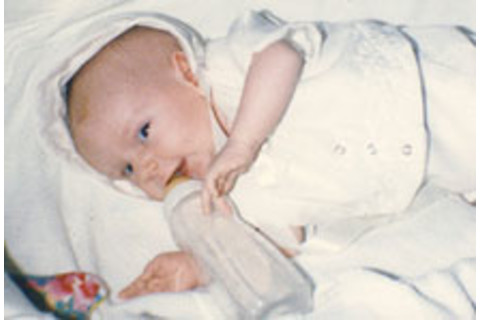
The Food and Drug Administration released a draft report on Friday saying that a chemical used in baby bottles and other plastics is not a health threat. The FDA announcement is just the latest twist to a health story that has already alarmed and confused consumers; the chemical, called bisphenol A or BPA, was recently declared a toxin by the Canadian government, and several states are considering banning products that contain it. In April, Wal-Mart announced that its stores will stop selling baby bottles containing BPA. BPA, a plastic-hardening chemical, is similar to the hormone estrogen. A
report in April from the U.S. National Toxicology Program said animal studies suggested its use may pose a cancer risk and lead to early or delayed puberty [Bloomberg].
But the new FDA report says that only small amounts of the chemical leach out from bottles and the lining used for canned foods, and says that it doesn't pose a threat to infants or adults.
Some environmental groups questioned the timing of the FDA's report, noting California lawmakers are expected to soon vote on removing bisphenol from children's products. If signed into law, it would be the first state ban of the chemical. "For this to come out on a Friday afternoon, just before California takes action, it definitely raises some eyebrows," said Renee Sharp, a senior analyst with the Environmental Working Group. At least 10 states besides California are also considering bills to restrict use of the chemical [AP].
But industry groups say that the health scare regarding BPA is just a result of hype and fear-mongering, and say that the FDA has injected a note of reason into the debate. Steven Hentges, a researcher with the American Chemistry Council, says
that consumers and companies that ditched bisphenol A made those decisions "very quickly, without having complete and final information." Hentges says the studies that touched off concern "really aren't very robust" [WebMD].
For more on what we don't know about the chemicals found in plastics, see the recent DISCOVER investigation, "The Dirty Truth About Plastic."
Image: flickr/foundphotoslj













